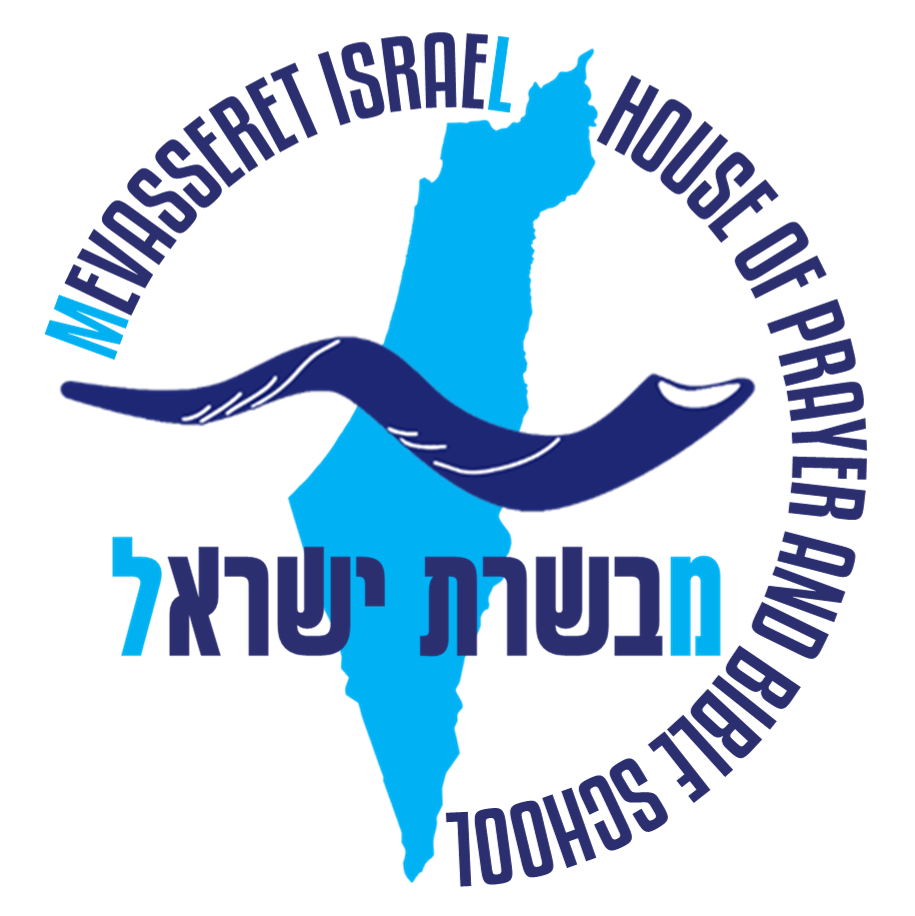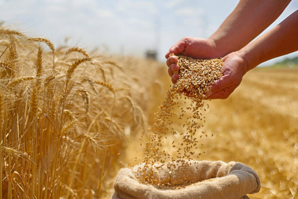Hanukkah Part 1 “Zeal for the Lord”
The word Hanukkah means inauguration, dedication, consecration.
It comes from the verb lachnoch לחנוך and has the same root of the verb lechanech לְחַנֵּךְ (to educate).
As in the Feast of Purim, reported in the book of Esther, Hanukkah is not part of the moadim, the 7 Feasts, Holy Convocations or Appointed Times by God in Leviticus 23.
The events that led to this celebration took place in the intertestamental period. The sources for information about this feast are in the apocryphal books of 1 and 2 Maccabees and also in the writings of the historian Flavius Josephus.
The first 2 books of Maccabees, by an unknown author, were written in Hebrew in the 1st century B.C.
Flavius Josephus was a Jew who lived in the 1st century A.D., in Roman-dominated Judea. His Hebrew name is Yosef ben Mattityahu (Joseph, son of Mattathias). He was a Jewish-Roman historian and apologist, descended from a line of important priests and kings. Josephus recorded in loco the destruction of Jerusalem in 70 AD. His works provide an important overview of first-century Judaism, and also describe the story of Hanukkah.
Biblical passages related to Hanukkah:
Daniel 8, 9 and 11; Zechariah 9; Matthew 24; Mark 13; John 10:22-23
2 Thessalonians 2; Revelation 13
Date – 25th of the biblical ninth month – Kislev (This year from 25/12 to 02/01)
Zechariah 7:1
‘Now in the fourth year of King Darius it came to pass that the word of the Lord came to Zechariah, on the fourth day of the ninth month, Chislev, ‘
History
Hanukkah is celebrated as a memorial to the ‘re-consecration’ of the second Temple, (Beit haMikdash) in 165 BC, after the miraculous victory of the small group of rebellious/zealous/faithful Jews (‘Maccabees’ – ‘hammers’) over the Greek armies of the pagan ruler Antiochus Epiphanes, a clear figure of an anti-messiah.
It was not the first time that the enemy had tried to steal Jerusalem from the hands of the Jews (it was not the last). Nor was it the first time they had to restore the Temple. When the people returned from Bavel more than three centuries earlier, Zeruvavel, Ezra, and Nechemyah had a great challenge in building the temple and the city walls. (between 538-430 BC)
History tells us that around 333 BC, Alexander the Great conquered the world establishing the Greek empire and implementing Hellenism and humanism, with all Greek culture and its idolatry that opposed the Word of God and its followers, the Jewish people.
Greek culture invaded Jerusalem and the temple was desecrated in the year 168 BC, on the 15th of the ninth month, by one of Alexander’s generals, Antiochus IV or Antiochus Epiphanes (“Antiochus, the visible god”).
Antiochus IV was a Syrian Seleucid general who erected a statue to the Greek god Zeus with his own face and placed it in the Holy of Holies, demanding that the Jews worship him. By rejecting the demand, 80,000 Jews were murdered. With the persecution of our people, came the prohibitions on the fulfillment of the precepts of the Torah such as the observance of the Sabbath, circumcision, the study of the Torah, the restrictions on kosher food (kashrut), the celebration of the Biblical Feasts of the LORD.
2 Maccabees 6:1-9
Not long after this the king sent an old man of Athens to compel the Jews to depart from the laws of their fathers, and not to live after the laws of God: And to pollute also the temple in Jerusalem, and to call it the temple of Jupiter Olympius; and that in Garizim, of Jupiter the Defender of strangers, as they did desire that dwelt in the place. The coming in of this mischief was sore and grievous to the people: For the temple was filled with riot and revelling by the Gentiles, who dallied with harlots, and had to do with women within the circuit of the holy places, and besides that brought in things that were not lawful. The altar also was filled with profane things, which the law forbiddeth. Neither was it lawful for a man to keep sabbath days or ancient fasts, or to profess himself at all to be a Jew. And in the day of the king’s birth every month they were brought by bitter constraint to eat of the sacrifices; and when the fast of Bacchus was kept, the Jews were compelled to go in procession to Bacchus, carrying ivy. Moreover there went out a decree to the neighbour cities of the heathen, by the suggestion of Ptolemee, against the Jews, that they should observe the same fashions, and be partakers of their sacrifices: And whoso would not conform themselves to the manners of the Gentiles should be put to death. Then might a man have seen the present misery.
Entire families were put to death. Children were hanged around their mothers’ necks and thrown from the walls of the city. One of the seven brothers who were killed made a statement shortly before he died:
2 Maccabees 7:1,2,14
It came to pass also, that seven brethren with their mother were taken, and compelled by the king against the law to taste swine’s flesh, and were tormented with scourges and whips.But one of them that spake first said thus, What wouldest thou ask or learn of us? we are ready to die, rather than to transgress the laws of our fathers. So when he was ready to die he said thus, It is good, being put to death by men, to look for hope from God to be raised up again by him: as for thee, thou shalt have no resurrection to life.
Let us see an excerpt from Flavius Josephus’ report:
“for they were whipped with rods, and their bodies were torn to pieces, and were crucified, while they were still alive, and breathed: they also strangled those women and their sons whom they had circumcised, as the king had appointed, hanging their sons about their necks as they were upon the crosses. And if there were any sacred books of the Law found, it was destroyed, and those with whom they were found miserably perished also.”
(The Antiquities of the Jews, Complete Works of Flavius Josephus, Book XII – chapter V “From the Death of Alexander the Great to the Death of Judas Maccabeus.” Grand Rapids: Kregel Publications, 1960.)
These families were faithful, zealous, and martyrs, as we read in Hebrews 11:36-40:
‘Still others had trial of mockings and scourgings, yes, and of chains and imprisonment. They were stoned, they were sawn in two, were tempted, were slain with the sword. They wandered about in sheepskins and goatskins, being destitute, afflicted, tormented— of whom the world was not worthy. They wandered in deserts and mountains, in dens and caves of the earth. And all these, having obtained a good testimony through faith, did not receive the promise, God having provided something better for us, that they should not be made perfect apart from us.’
One day, a Syrian official ordered Matitiahu HaMacabí (the Maccabee), head of an important family of priests of the Temple, to offer a pig on the Altar. Matitiahu, along with his five sons, started a Jewish revolt, killing the Syrian officer and all his soldiers. Under Matitiahu’s leadership, other Jews joined the revolt.
According to what is written in the Book of 1st Maccabees, the Greeks asked Matitiahu to set an example for his brothers and sacrifice first to the idol. Matitiahu refused to do so and declared his faithfulness to the Torah. When one of the Jews approached to sacrifice to the idol, Matitiahu by God’s zeal killed the Greek/assimilated/apostate Jew.
Biblical Zionist Warriors
Unfortunately, at the time of the Maccabees, there were many of our people who adopted pagan and humanistic practices, just like in our days. The Universities are taken by the spirit of Greece and have allowed the anti-Semitic movement, called “pro-Palestine” to spread among the nations.
We have prayed that, in our generation, God will raise up the sons of Zion to positions of leadership in Israel and remove the sons of Greece, according to Zechariah 9:11-13:
‘“As for you also, Because of the blood of your covenant, I will set your prisoners free from the waterless pit. Return to the stronghold, You prisoners of hope. Even today I declare That I will restore double to you. For I have bent Judah, My bow, Fitted the bow with Ephraim, And raised up your sons, O Zion, Against your sons, O Greece, And made you like the sword of a mighty man.”’
We know that Greek thought is totally man-centered, but the sons of Zion are totally centered on God and His Word.
Zeal for the Lord
We see in the scriptures more examples of men and women who did not assimilate, did not let humanism, paganism, remain in the midst of our people. They were zealous of the Lord! Let’s look at the example of Pinchas (Phinehas) in Numbers 25:1-11:
Now Israel remained in Acacia Grove, and the people began to commit harlotry with the women of Moab. They invited the people to the sacrifices of their gods, and the people ate and bowed down to their gods. So Israel was joined to Baal of Peor, and the anger of the Lord was aroused against Israel. Then the Lord said to Moses, “Take all the leaders of the people and hang the offenders before the Lord, out in the sun, that the fierce anger of the Lord may turn away from Israel. ”So Moses said to the judges of Israel, “Every one of you kill his men who were joined to Baal of Peor.” And indeed, one of the children of Israel came and presented to his brethren a Midianite woman in the sight of Moses and in the sight of all the congregation of the children of Israel, who were weeping at the door of the tabernacle of meeting. Now when Phinehas the son of Eleazar, the son of Aaron the priest, saw it, he rose from among the congregation and took a javelin in his hand; and he went after the man of Israel into the tent and thrust both of them through, the man of Israel, and the woman through her body. So the plague was stopped among the children of Israel. And those who died in the plague were twenty-four thousand. Then the Lord spoke to Moses, saying: “Phinehas the son of Eleazar, the son of Aaron the priest, has turned back My wrath from the children of Israel, because he was zealous with My zeal among them, so that I did not consume the children of Israel in My zeal.
In Psalm 106:30,31 we once again read about the zealous, Pinchas:
‘Then Phinehas stood up and intervened, And the plague was stopped. And that was accounted to him for righteousness to all generations forevermore.’
Reflection and Prayer:
WHAT CAN YOU AND I DO TO STOP THE PLAGUE OF OUR GENERATION?
In the sublime love of Yeshua haMashiach.
Yoshua e Shoshana – Mevasseret Israel
Prayer Alerts and Articles




